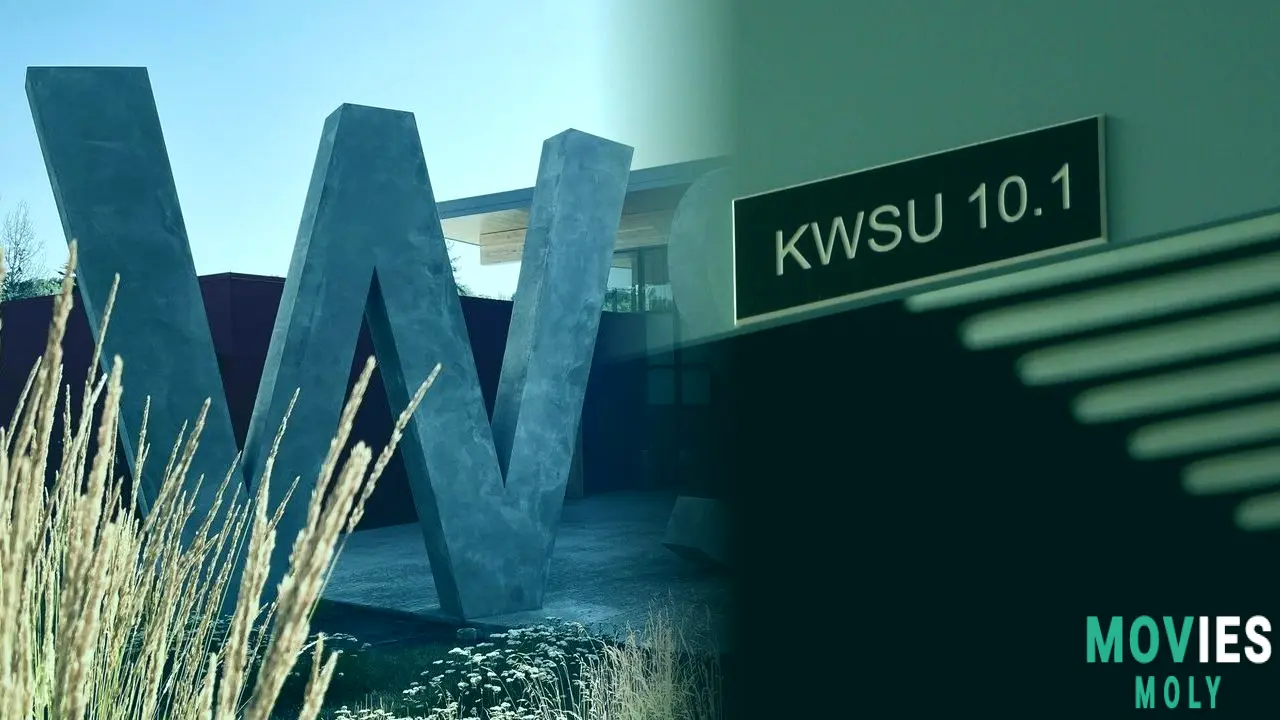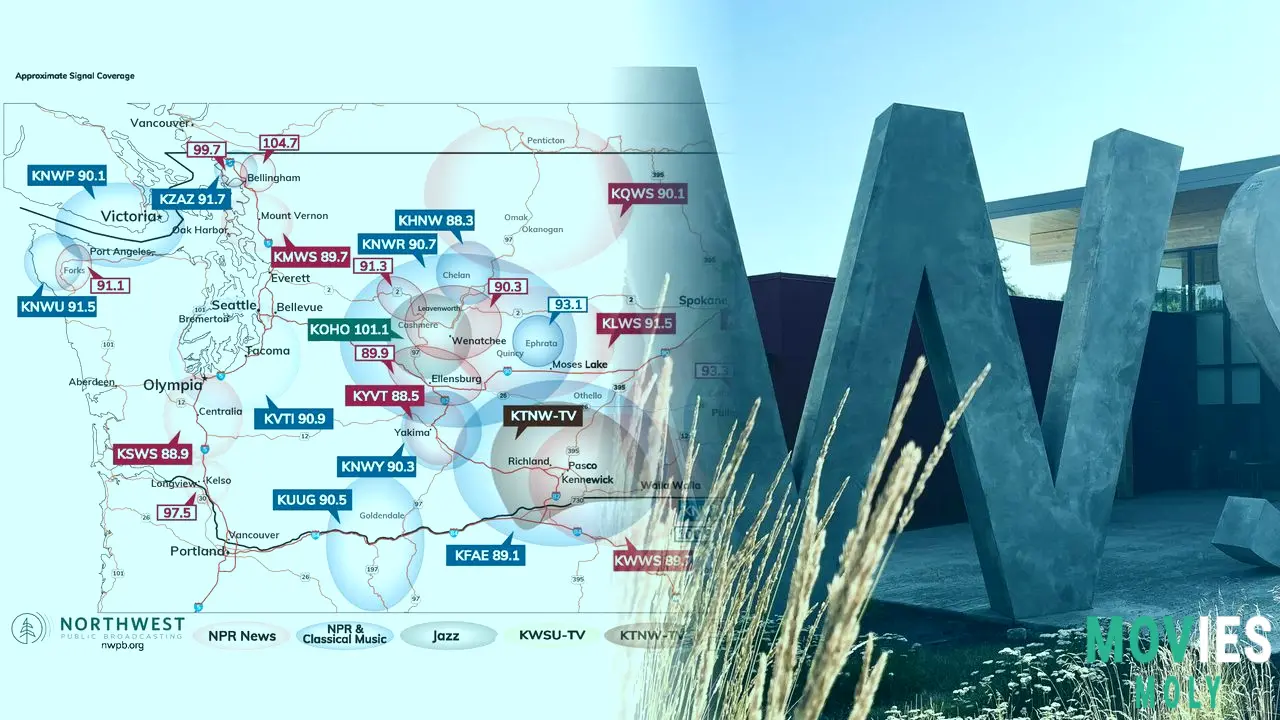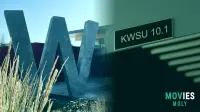Big news out of Washington State University: KWSU-TV, the public television station based in Pullman, is set to cease operations by the end of this year. It's a bittersweet moment for a station that's been a cornerstone of local broadcasting for over six decades.
TL;DR: Key Takeaways About KWSU-TV's Closure- KWSU-TV in Pullman will stop broadcasting on December 31, 2025, after 63 years on air.
- The closure is due to significant budget cuts, including a nearly $2 million annual loss in federal funding for Northwest Public Broadcasting (NWPB).
- While KWSU-TV is shutting down, NWPB's radio stations and KTNW-TV in the Tri-Cities will continue to operate, and most viewers can access other PBS programming.
A Long-Standing Legacy Concludes for KWSU-TV's Operations
After 63 years of dedicated service, KWSU-TV, known as one of the Pacific Northwest's earliest educational television stations, is officially saying goodbye. Founded way back in 1962, this station has been a truly vital part of Washington State University's (WSU) Edward R. Murrow College of Communication, jointly operated with Northwest Public Broadcasting (NWPB). For generations, it faithfully served the Palouse region, acting as a crucial link for rural communities to access essential educational programming from the Corporation for Public Broadcasting (CPB).
This decision, jointly announced by WSU and NWPB leadership, marks a pretty big shift in the landscape of public media for our region. It's more than just a station closing its doors; it really represents the end of an era for a broadcast outlet that has contributed so much to local news, community information, and cultural enrichment in Washington.
The Financial Storm: What Led to KWSU-TV's Shutdown Decision
The path to KWSU-TV's closure has been a challenging one, unfortunately, driven by a perfect storm of financial pressures. The main reason cited is the pressing need to reduce NWPB's annual operating costs by a substantial $1.8 million. This hefty cut is largely a direct response to a massive and unexpected shift in federal funding for public broadcasting across the country.
Earlier this year, the U.S. Congress voted to rescind over $1 billion in previously approved funding for public broadcasting nationwide. For NWPB and WSU specifically, this translated into a critical blow: a loss of nearly $2 million in annual funding, including $1.2 million in direct operational support from the Corporation for Public Broadcasting's Community Service Grant. And it wasn't a sudden crisis either; NWPB had already faced significant budget deficits, seeing its net financial position decrease by $1.6 million in fiscal year 2023 and another $1.7 million in 2024.
Bruce Pinkleton, the dean of WSU’s Edward R. Murrow College of Communication, openly acknowledged the difficulties. "These are tough times, to be sure," he said, emphasizing the inherent expense of producing quality journalism. He also pointed out that recent investments made to adapt to new digital audiences didn't yield the anticipated revenue growth, which just compounded the already severe financial strain.
"Journalism is an expensive operation. We were really building toward the future, and we incurred some debt. Then the donations didn’t keep up with costs."
— Bruce Pinkleton, Dean of WSU's Edward R. Murrow College of CommunicationHow This Affects Public Television Viewers Across the Northwest
If you're a regular KWSU-TV viewer, you're probably wondering what this big change means for your favorite shows and local content. Here's the good news: for many people in Washington, especially those living in the Spokane area, your PBS programming isn't going anywhere. KWSU-TV often operated as a "secondary provider," which means it had smaller audiences and a more limited opportunity to show some of the top-tier public broadcasting content. Other stations like KSPS PBS in Spokane and Idaho Public Television (KUID-TV in Moscow) already cover much of the region, and they'll continue to do so without interruption.
For those of you who are NWPB donors and rely on the fantastic PBS Passport streaming service, you're still completely covered! Your membership benefit will continue to be active and accessible through NWPB’s Tri-Cities station, KTNW-TV. So, you definitely won't lose access to that amazing on-demand library of shows.
One specific channel that will be impacted and discontinued is the Create channel, which will also cease operations as of December 31. However, the World channel and the popular PBS Kids 24/7 channel, which are also operated by NWPB, are expected to continue broadcasting without any disruptions.
Northwest Public Broadcasting's Radio Network and KTNW-TV Remain Strong and Active
While KWSU-TV is unfortunately shutting down, it's really important to remember that a significant and vital portion of Northwest Public Broadcasting's services will continue to thrive. Their extensive radio network, which serves a vast area across Washington state and even parts of Oregon, Idaho, and British Columbia, will remain fully operational. This network boasts an impressive reach of 3.6 million listeners in 44 counties, covering about 80% of Washington's entire landmass.
Bruce Pinkleton made sure to emphasize the critical importance of these ongoing services, particularly for smaller and more rural communities. "NWPB Radio serves an important land-grant function by reaching many smaller and rural communities through its radio services," he stated, reinforcing WSU's enduring commitment to this vital outreach and educational mission.
Additionally, KTNW-TV in Richland, which provides public television programming to the Tri-Cities area, will also continue broadcasting without any interruption. So, while one door regrettably closes, other important avenues for news, information, and cultural content remain wide open, continuing to deliver essential services to our communities.
The Human Element: Employee Impacts and Important Union Negotiations
The decision to close KWSU-TV, as you can imagine, naturally carries a significant human cost. These necessary budget realignments will regrettably lead to employee reductions at NWPB. This comes at a particularly sensitive time, as reporters and content creators who operated KWSU recently made the decision to unionize with SAG-AFTRA (the Screen Actors Guild and American Federation of Television and Radio Artists).
WSU and NWPB leadership have made a clear commitment to navigating this process with the utmost care, adhering to all collective bargaining obligations, and working diligently to mitigate the impact on employees as much as humanly possible. However, the exact number of jobs affected is still in negotiation. This situation isn't unique to Washington; it reflects a broader national trend, with U.S. Sen. Maria Cantwell pointing out that over 400 journalists and support staff have been laid off from public media organizations nationwide due to federal funding cuts, including 17 layoffs at Cascade PBS in Seattle earlier this month.
"At a time when we need more local journalism, now is not the time for short-sighted funding cuts that mean Washingtonians are going to lose vital sources of news and emergency information like KWSU-TV and at Cascade PBS. We must push back on this administration’s continued efforts to denigrate and weaken the free press and local journalism."
— U.S. Sen. Maria Cantwell (D-Wash.)Looking Ahead: A Sustainable Future for Public Broadcasting Without Federal Funding
The ultimate goal behind these difficult and strategic decisions is to forge a truly sustainable financial future for NWPB that no longer relies so heavily on federal funding. With the implemented reductions, WSU leaders are optimistic that NWPB will achieve a balanced budget by fiscal year 2029. This long-term financial stability is seen as absolutely crucial for continuing the essential mission of providing trusted news, information, and cultural programming across the entire Northwest region.
Notably, generous philanthropic investments played a key role in this process, providing WSU and NWPB the necessary time to meticulously evaluate budgets and develop this new, thoughtful plan. While the federal funding landscape isn't expected to return to its previous robust state—as Pinkleton candidly noted, "The Corporation for Public Broadcasting is just gone" (referring to the significant previous funding levels)—the emphasis will undoubtedly shift even more heavily to listener and viewer support, as well as strong community partnerships, to sustain these vital services.
As part of this significant transition, the valuable assets associated with KWSU-TV, including its equipment, broadcasting license, and essential bandwidth, are expected to be thoroughly reviewed by the WSU Board of Regents for potential sale. This could provide additional, much-needed resources to support NWPB's ongoing operations and its land-grant mission to diligently serve the public. So, while KWSU-TV's specific chapter is sadly closing, the broader story of public broadcasting in the Northwest is far from over. It's adapting, regrouping, and leaning on its community more than ever to ensure its essential services endure for years to come.
Frequently Asked Questions About KWSU-TV's Upcoming Closure

Sources Utilized for This Comprehensive Report and Analysis
- The Spokesman-Review
- Current.org
- Northwest Public Broadcasting Official Announcements
- The Daily Evergreen
- Lewiston Morning Tribune
- Pullman Radio
- NonStop Local KHQ
- KXLY


